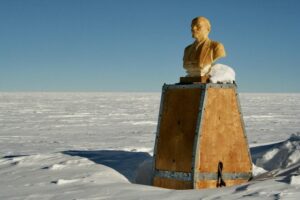Activity in War is movement in a resistant medium. Just as a man immersed in water is unable to perform with ease and regularity the most natural and simplest movement, that of walking, so in War, with ordinary powers, one cannot keep even the line of mediocrity. This is the reason that the correct theorist is like a swimming master, who teaches on dry land movements which are required in the water, which must appear grotesque and ludicrous to those who forget about the water. This is also why theorists, who have never plunged in themselves, or who cannot deduce any generalities from their experience, are unpractical and even absurd, because they only teach what everyone knows—how to walk.

I am no Clausewitz; what is going on in Ukraine probably owes something to those who are familiar with what he has said on War. War creates extraordinary times, and only a few people can survive its intensity. Zelensky is on the cusp of greatness, and unlike Churchill who was deeply flawed, could emerge as a great figure without the negative aspects – and at a younger age. Zelensky is a comedian – as such he understands the frailty of human nature; and it is that understanding, coupled with his incorruptible ferocity, which enables him to tower over both friend and foe. Before Zelensky, Ukraine was seen as a basket case, with both a succession of corrupt governments and, for a time, a very pro-Soviet Government, not unlike Belorussia.
NATO, with the escalating commitment of tanks to the War, seems to be signalling a Spring offensive, where the tactics which the Germans used in early 1940 to win the battle will be played out again, albeit in a modified form. Even without feeding the troops with amphetamine as the Reich did, it is here that NATO has an overwhelming advantage. Black soil dry is a beautiful surface upon which to launch an offensive, but if the Spring rains come, then the tanks will become less effective in the terrain. But the overall number of tanks in the offensive should be sufficient to counteract the rain – hopefully.
At the same time, intelligence is being gathered as to where the pro-Russian population resides within the Ukraine boundaries. Neither side wishes to garrison a countryside where an underground resistance movement is the last thing anyone wants, having been exhausted by war.
Nevertheless, despite the NATO decision to contain the War, the aim will be to take back Crimea, which has been considered pro-Russian. The Kerch Bridge and the land bridge from Rostov in Russia through Mariupol and Melitopol in Ukraine and into Crimea would be viable targets for an augmented Ukrainian force. Therefore, optimistically, assuming that Crimea will be retaken and Ukraine is accepted into NATO, Russia will be strategically outflanked in the Black Sea. No need to cross the border; all so simple. Unfortunately, no. No need to garrison anybody.
One suspects that Russia is so riddled with corruption that it is hard to imagine that such a country, despite an initial overwhelming superiority in arms can endlessly prosecute conflict at the current level without a massive change in the situation it finds itself in. The refusal of NATO to allow the war to spread across the Russian border provides some relief. This allows the Russians to destroy much of the Ukrainian infrastructure, without it appears, it cowering the general population. But there are limits, and the Russians in the end have at least one viable threat – convert the Ukraine War into a nuclear war.
What puzzles me is the seeming disconnect between the everyday life – in Australia concerned with the so-called “Invasion Day” and preparing for a year with scant attention to the prospect of a nuclear war and the inexorable movement of the planet to irreversible, unmanageable climate change. A nuclear war is not being seriously contemplated. But much of the World is being governed by old men, most of whom are in positions where they are protected from being fingered for dementia. I do not rule out that some of these grandees have tertiary syphilis, but nobody looks for the chameleon disease. In the end, the World does not need demented grandiosity.
Men are loath to go to the doctor. Putin has been subject to speculation over his mental condition, and he would have steered clear of any examination which might confirm this – especially if an organic cause were incidentally discovered. As written in the Los Angeles Times just after the Ukraine invasion in February last year, it suggested that while Putin could be going mad, mental disability can be used as a ruse. The notion that a head of state can reap foreign policy rewards by appearing utterly unpredictable — a tactic President Nixon was said to have employed to try to rattle North Vietnam — also had recent echoes during the Trump administration, when supporters maintained he cleverly flummoxed opponents by unexpectedly breaking with established norms. I think cum grano salo, notwithstanding!
As I said, nobody seems to take the nuclear war option seriously. Russia has extensively destroyed Ukraine infrastructure which will need to be rebuilt. What will stop Russia from going the further step, if madness is abroad within the Kremlin. When the Cold War was at its height in the 1950s, and there was a real fear of a nuclear war, WWII damage in Europe at least was still evident. Russia had effectively sealed off Eastern Europe and neutralised Austria and Finland; thus, the Russian Empire had a huge buffer zone, and when rebellion occurred in Hungary in 1956, the West just sat on its hands and watched Hungary moved back into the Russian fold. Yet the prospect of nuclear war was uppermost in the American government’s minds, culminating in the Cuban crisis. However, the defences against a nuclear war were extensive – I remember seeing the nuclear shelter at Greenbriar, a historic hotel in West Virginia, where a bunker was built so the government could be transferred there from Washington in the event of a nuclear war.
Putin has shown that he is the master of divide and rule; and he has been able to exploit the narcissism of the wave of populist dictators. Particularly troubling has been his relationship with Trump. The relationship as reported as changed from the years when Trump was hosting a “world” beauty contest as his then contribution to American foreign relations. In 2013, Trump admitted to an unspecified yet warm relationship with Putin, something he later denied. Nevertheless, what exists behind outward conflicting statements, can only be only the subject of conjecture, but it is inconceivable that the Americans are not well acquainted with Trump’s behaviour in compromising his own country.
Another game changer the Russians must be contemplating is the assassination of Zelensky, and reckoning that the Ukrainian resolve will crumble, given that Ukraine was perceived to be corruption-ridden not so long ago. Zelensky, from his recent action, is acutely aware that corrupt behaviour must be combatted quickly.
Then what is to stop Putin slinging a few nuclear warheads into Poland to test reaction. Once the tide turns as inevitably it must, Russia must face defeat, whether they cut off her head by employing nuclear devices or mounting an invasion by technology superior to any the Russians can muster. Presumably NATO has enough data to assess the risk. NATO is in a bind. Things were fine when it was just a case of brinkmanship, but Putin changed the game when he invaded a country close to the heart of NATO.
He had telegraphed his tactics by the brutality in the Russian Caucasus, and in Georgia where he took a piece of that country because he could. Armenia was another playground, but rather than upping the ante there, he turned to the Ukraine. He predicted after his takeover of Crimea, that the Ukraine would be easybeats.
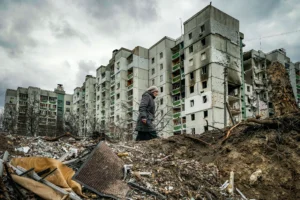
Nevertheless, he has shown that while he may be losing the ground war, he can destroy the infrastructure of the country with impunity. He may believe that Europe is not ready for the same level of destruction in order to prevail over Putin. Putin may, as I wrote above, send a few missiles into Poland to see whether NATO has the appetite for a war as bruising as it has been for Ukraine.
In one way, the deployment of the leopard tanks is symptomatic of this hesitancy, which dictators view as weakness, and others bureaucratic sluggishness. Presumably if someone decisive in NATO said, “let’s muster all the tanks and let’s go!”, there would be a flurry of reasons advanced not to send them. Masterly inactivity; and all the while the Ukrainians keep defending their country, despite it being gradually destroyed. Anyway, Spring will come at the beginning of March, and it will be Autumn in Australia. I’ll be celebrating St David’s Day, eating Welsh rarebit and watching “On the Beach”, so as not to worry about the cloud on the horizon.
But in the end, what would I know, as Clausewitz said about just telling everybody how to walk without, I suggest, sucking an egg or two. I can’t even swim.
The Battle for Alice Springs
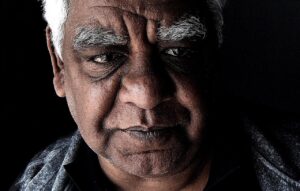
Our major aim would be the central remote building construction. It is one that the government worked very closely on, through the Indigenous Housing Authority of the Northern Territory. It was one where they changed the procurement process from each community having a pick of housing to it being under one project manager. The project manager had the responsibility of allocating the houses as well as the funding, so it was vacant of any deception or manipulation. That having been done, the standardised designs and standardised specifications came in. It got rid of a lot of unscrupulous thinking and made it workable. That is the way that the community had control over the apprentices, where they wanted the houses and the designs, and the money came directly from my hand into the project. – William Tilmouth Executive Director the Tangentyere Council 2005.
The Alice Springs debacle challenges the relevance of the Voice. The NT government virtually gave open slather to the town camp inhabitants to be intoxicated at will so that domestic violence has increased and the young kids rampage through the night, showing a combination of boredom, recreation and pilfering.
It is summer and the Aboriginals tend to come to town to avoid the heat of the outstations; but as I always remember when I was visiting towns where there was a high proportion of Aboriginal people, there would be talk about the “bad people” coming to town, without specifying who they were. But if you worked in a place long enough, you had a good idea. The other influence which was mentioned to me was the kadaitcha man, unseen whose power was exerted over spiritual totems, but nobody identified anyone to me, although I met a number of ngangkari, (medicine men had a number of names).
Alices Springs has presented a chronic problem of alcohol abuse. It is commonplace to have loud shouting matches in the streets, and at the root of the problem is alcohol, drugs, neglect, boredom. These need addressing, but not by a fleeting visit by a Canberra entourage. Each of these demands strengthening traditional structural change and a willingness for this to occur.
Years ago, William Tilmouth, when he was the Executive Director of Tangentyere Council, took me around the camps where Aboriginal people live for at least part of the year. It was a time when his elder brother, Tracker Tilmouth was still alive. It was clear that William and his brothers carried authority. He was intent in improving the standards of town camps, at a time when outstations were the winter accommodation. When I met him, he was one of Arrente brothers, who were described to me as graziers. Between 1989 and 1997, his brother Tracker planned and oversaw the purchase of five pastoral leases for Aboriginal traditional owners. As Warren Snowden said about Tracker at the time of his death in 2015, “He was an enigmatic figure but he had a real passion for getting people involved in employment.”
William did, and the youngest, Patrick, also have similar passions. In explanation, the three brothers were the last trio of children born into a family of eight. Ostensibly because of their darker colour, these three were sent north to Darwin in the first instance. The first five because their skin was a lighter tone were sent to Adelaide. The whole family were part of the Stolen Generation – dispossessed from their lands. Hence when they returned, the three brothers gained influence through the land acquisition.
In 2018 William had moved to head Children’s Ground, (inter alia its aim is to secure the fundamental rights of the child, the family and the community, wherever intergenerational inequity pervades). Yet Tilmouth said, When my father’s traditional lands were given back, my brother and I were not even notified of the ceremonial handback. The apology meant nothing to me – there are too many sorries and not enough truths.” In other words dispossession is a great weapon which the white populations so exploited.
The point is that William Tilmouth is not a blow-in. Yet when the Prime Minister dropped by and presented himself as an exemplar of old whitefella paternalism, Tilmouth was apparently not invited. After all, Linda Burney and Pat Dodson came too – talking the normal banal stuff, to which the nation has become inured. It should not take a gaggle of photo opportunity prone politicians pontificating to reinstate the alcohol bans, which should have never been removed.
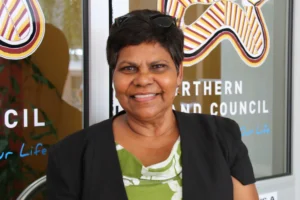
The local Member of Parliament for Lingiari is Marion Scrymgour. I thought she looked distinctly uncomfortable as part of the Prime Minister’s entourage. I knew her when she served as director of the Wurli Wurlinjang Aboriginal Corporation, co-ordinated several trial community care programs around Katherine, and as Director of the Katherine West Health Board Aboriginal Corporation. She did a very good job, and I remember she had a corps of very good Aboriginal health workers (as they were then called). I had always identified her with Katherine and the Jawoyn people, but she is half Tiwi; half Arrente – which does give her sufficient standing to sort through the challenges this Alice Springs crisis presents.
The problem is that it is said Canberra only listens to Aboriginal people, who some deride as “coconuts”. The currently most influential of the Aboriginal bureaucrats seems to be Tom Calma who has walked that edge. He is an Aboriginal who has immersed himself in the Canberra bureaucracy since 1992 and become the convenient authority for the media to consult. He is the whitefella anodyne, who has an exceptional ability to collect laurel wreaths and shiny baubles, the latest being Australian senior citizen of the year representing the Australian Capital Territory. It is not an unfamiliar trajectory, as in 2012 he was named ACT Australian of the year, only to be defeated by Geoffrey Rush for the gold medal. The nature of the man is not to give up in the quest for ongoing deserved recognition.
His trajectory has also shown a canniness of being given credibility without leaving Canberra, without the unpleasant task of doing anything but pamphleteering – a blackfella Fabian. He has left that activism to his mate, Marcia Langton, and Noel Pearson; demonstrating what can be done by a distant megaphone? History will judge whether Calma will have any legacy but a trail of documents and whether he will have any impact in solving the problem with black and white relationships, as shown by this latest trouble.
I have a simple solution as a start. Sit with William Tilmouth and whoever else he believes relevant and review what has worked in Central Australia, and as often happens what has worked for more than just a couple of years, generally until the governing “mob” changes. A common scenario is that a different mob gets control, and matters go back to square one. Feuds are common among Aboriginals, but whether these are greater than in the whitefella world, it is for others to provide objective evidence. I was not aware of that having been shown in Alice Springs.
I was amazed to see the Congress (Central Australian Aboriginal Congress) buildings vandalised. Congress, I remember, was integral in assuring Aboriginal social and health status in Alice Springs. At the time I was most closely involved with Aboriginal people the idea that it would be vandalised would have been unimaginable.
However, I am haunted by the time when standing in an Aboriginal quarry elsewhere with an Aboriginal elder. We were accompanied by a woman doctor. I turned to him and said, “This is men’s business”. He looked at me for a minute and replied, without directly responding, “When the young fellas moved the corroboree stones to do burn-outs, I gave way and do not care any longer.”
Thus goes Aboriginal elder authority.
Hog Deer, Anyone?
Control measures for deer have not been extensively investigated as priority has been given to other pest species in Australia… once and future bureaucratic published excuse!

Deer are the next pests to be exterminated. They are just big rabbits. So, while they will eat out native vegetation, unlike the rabbits, they are hoofed animals so they also trample it and as such are enablers of weed infestations. Deer spread disease, and foot and mouth disease is an everpresent scourge which has been kept out of Australia. Then there the incurable wasting Johnes’ disease (JD), caused by a paratuberculosis bacteria. Reservoirs of this disease are known to occur in deer, very germane to this comment from the Queensland Government where the highest risks of spread of JD into and within Queensland is the movement of livestock from high-risk populations interstate and from properties where infection is known or suspected. It is unsurprising that deer are considered a feral pest there.
Thus, some states and territories consider feral deer to be pests (WA, SA, QLD, NT, ACT). Yet States with the largest deer populations (VIC, NSW, TAS) give deer full or partial protection status and ostensibly manage deer primarily for recreational hunting. In Australia there are estimated to be two million deer, in 1980 there were 50,000. This is despite an estimated legal harvest in Victoria in 2011 of 41,000 deer, including 34,000 Sambar.
The Victorian laissez-faire attitude is exemplified by the fact that “Hog, Red, Sambar, Fallow, Rusa, Chital, Sika and Wapiti Deer are defined as protected wildlife under the Wildlife Act 1975 (Wildlife Act). Hog, Red, Sambar, Fallow, Rusa and Chital Deer are further defined as game, which means they can be hunted by licensed game hunters. All other species of deer are declared as prohibited pest animals under the Catchment and Land Protection Act 1994 (CaLP Act).” The whole of the Victorian approach is that Victoria is akin to the Scottish Highlands, where deer hunting is a recreational activity, where class distinctions are acted out. Take the Victorian concern that hunters must also follow approved hunting methods and equipment; must comply with bag limits, seasons (for Hog Deer), and hunting times (no recreational night hunting); and must have a current Game Licence endorsed for hunting deer: either stalking and/or hunting Sambar Deer with hounds.
So much rubbish only in place to protect the hunting lodges which do a lucrative trade in providing accommodation for the deer hunters and charging fees to hunt on their property. Hardly a sufficient excuse, but enough to have the funds to lobby politicians.
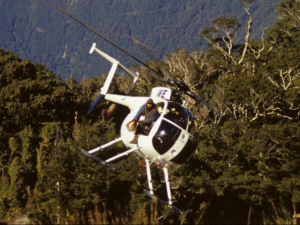
Tasmania still has legislation which has protected the deer population up till now. In Tasmania the deer are fallow and, it is estimated, now number, 100,000. This has ignited the people with a green edge to campaign for the unequivocal declaration of the deer being vermin, with no limits on the number killed. The Tasmanian government is about to embark on aerial shooting of deer using firearms and night spotting equipment not readily available in Tasmania. Aerial culling has been shown to work in New Zealand.
Move across the South Australian border, and the incidental comment that deer have been eradicated from Kangaroo Island just confirmed the tenor of the South Australian approach. Hunting the deer which are considered a pest was the responsibility of the landowners, with the intent of culling the number of female deer, so the number of fawns falls. The small and relatively localised deer population on Kangaroo Island made the eradication program feasible and possible because of community involvement, particularly in reporting sightings. What did not work was use of stalker dogs and food lures. However, with the bush fires in 2020, while the level of destruction was in region of 44,000, most of which were sheep, deer casualties were not mentioned, suggesting that the previous eradication had been successful, but the original numbers were comparatively small.
Kangaroo Island deer became a problem when a deer farm collapsed and the deer were set free. This is one of the common reasons for the explosion of the deer population – deer farms that fail and the deer are let go. The other major reason for the deer explosion has been the “salting” of the environment by deer hunters, who want variety in what they bag. In all these endeavours, there are devotees in high places, who have blocked any endeavours to change the system,
 Deer have a number of advantages. There is this lack of recognition of how dangerous they are. Unlike feral horses in the high country, they hide away from urban Australia. Their destructive effect is complicated by perceptions of deer, either being dewy-eyed fawns – the bambi effect, or alternatively projecting the majesty of the Monarch of the Glen. The hunter lobby is very powerful given that, in both the Victorian and New South Wales parliaments, there are representatives of Shooters, Fishers and Farmers Party.
Deer have a number of advantages. There is this lack of recognition of how dangerous they are. Unlike feral horses in the high country, they hide away from urban Australia. Their destructive effect is complicated by perceptions of deer, either being dewy-eyed fawns – the bambi effect, or alternatively projecting the majesty of the Monarch of the Glen. The hunter lobby is very powerful given that, in both the Victorian and New South Wales parliaments, there are representatives of Shooters, Fishers and Farmers Party.
As a footnote, what intrigued me is that enshrined in Victorian Law concerning deer is the inclusion of wapiti as protected species. We know them as elk, and for hunters the antlers are irresistible as wall hangings, and the elk sausages I once had when staying with a family in Montana – very tasty. Australia, you have been warned; elk are loose in the South Island of New Zealand.
Time to develop a national plan to rid Australia of a pest, before the eastern States release elk into the wild, adding to the list of feral animals destroying Australia. Or is the shootin’ and huntin’ lobby and its votes in parliament just too strong in Victoria and NSW?
Mouse Whisper
In a recent issue of The Economist when the future of the Walt Disney company now that it approached its centenary was being considered, the writer reminded us of what Walt Disney said on the eve of the first Disneyland opening: “I only hope that we never lose sight of one thing – that it was all started by a mouse.”
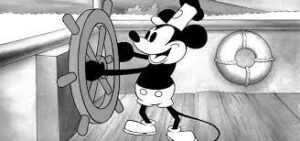

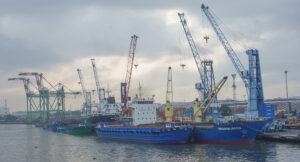


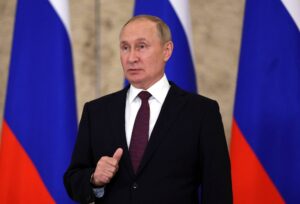

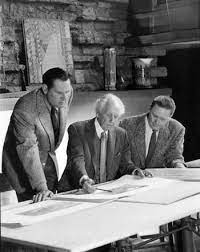

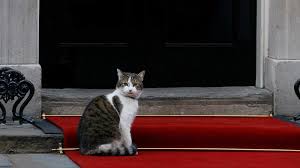
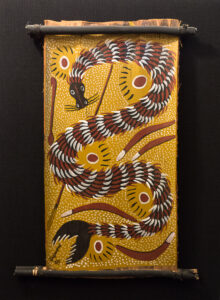
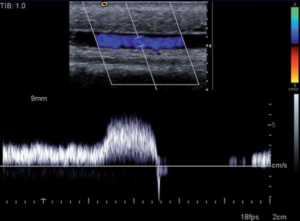
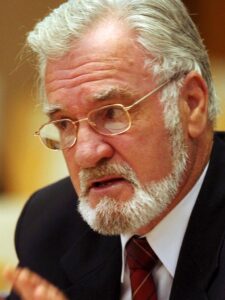
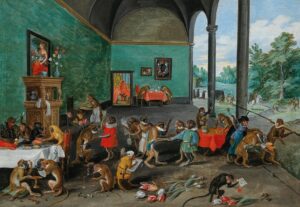
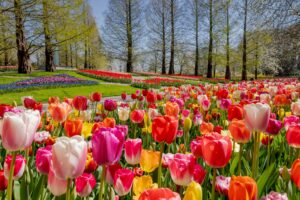 The value of the bulb during this hectic three period provided a way to extricate oneself from, if not poverty, at least to being able to afford a decent house -only if you sold early. However, given where many of the transactions took place as the author of Tulipomania wrote: “The trade was conducted for the most part in a haze of inebriation.”
The value of the bulb during this hectic three period provided a way to extricate oneself from, if not poverty, at least to being able to afford a decent house -only if you sold early. However, given where many of the transactions took place as the author of Tulipomania wrote: “The trade was conducted for the most part in a haze of inebriation.”
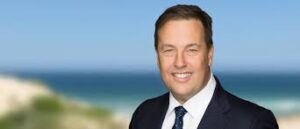

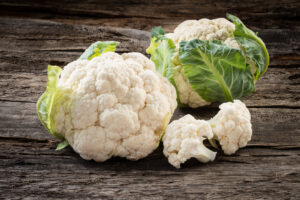
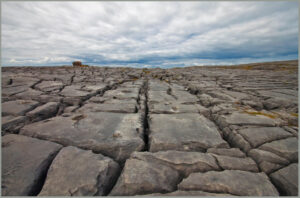
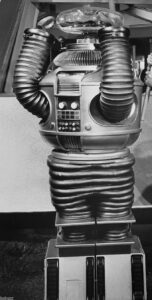 Albanese, you addressed them, but see how the Murdoch Press tried to mangle you? As the Robot’s catchcry in Lost in Space goes: “Warning, warning, warning!” Rather apt, I would think – on many fronts!
Albanese, you addressed them, but see how the Murdoch Press tried to mangle you? As the Robot’s catchcry in Lost in Space goes: “Warning, warning, warning!” Rather apt, I would think – on many fronts!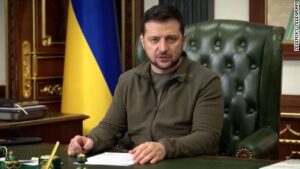

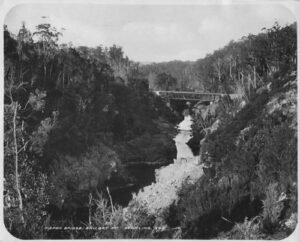
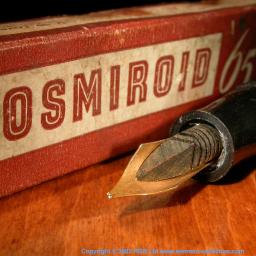
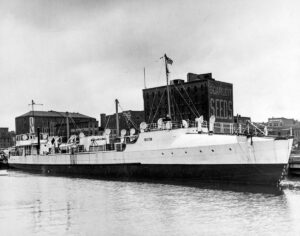

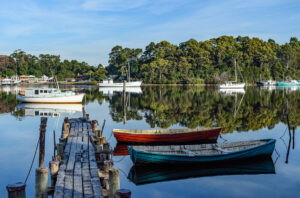
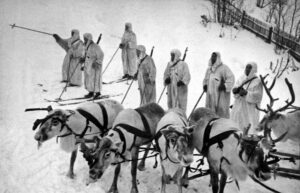
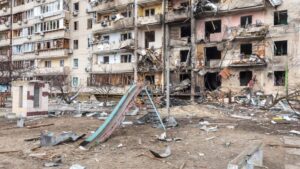
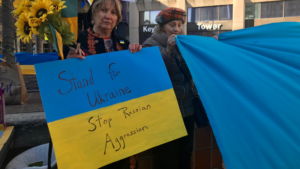
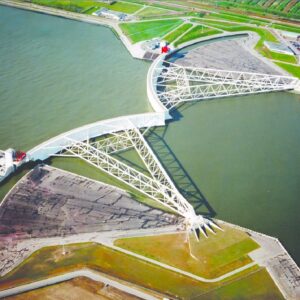
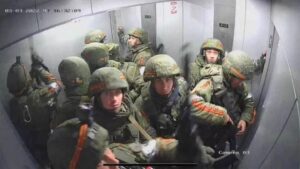
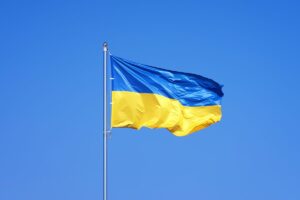
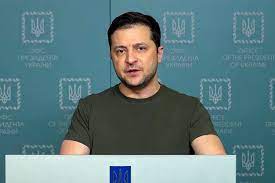
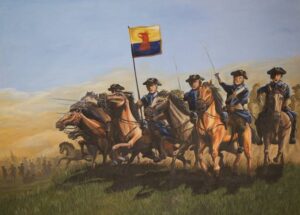
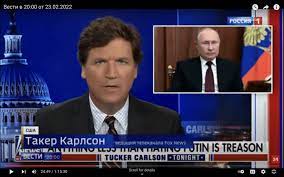




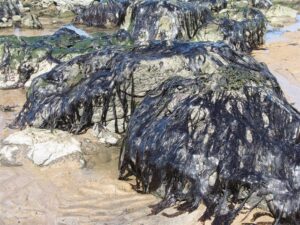
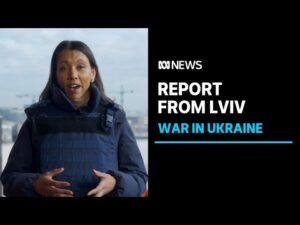 Below Isabella Higgins was reflecting on where she came from in a piece written three years ago. Now she is the ABC face in the Western Ukraine.
Below Isabella Higgins was reflecting on where she came from in a piece written three years ago. Now she is the ABC face in the Western Ukraine.